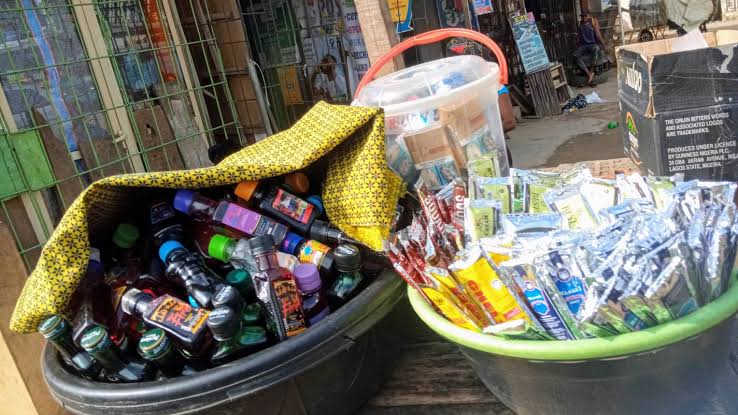A group, Concerned Citizens of Nigeria (CONCON), has criticized the ban of alcohol in sachets and small volume PETs by the National Agency for Food and Drugs Administration and Control (NAFDAC).
The group argued that the agency lacks legal authority to ban any products based on their package size and called on the leadership of the National Assembly to intervene and save millions of jobs that are at risk due to the ban.
Speaking to journalists after a peaceful protest in Abuja, the President of CONCON, Comrade Peter Chichi Harry, said the ban disregards all legal considerations and is therefore “deemed ‘null and void’, unconstitutional, uncontestable, and of no consequence.”
The group questioned why, despite the National Assembly’s House Committee on Food and Drugs Administration and Control’s call for restraint, several petitions, and a lack of legal backing, NAFDAC has proceeded to implement an MOU signed by federal government agencies on 18th December 2018, to ban the packaging of high-strength alcohol in sachets and small volume PETs, effective from 31st of January, 2024.
He said, “One could only imagine millions of jobs being lost to this ban if it were to be, except that alcohol is after all not a contraband product. However, the ban, which disregards all legal considerations, is therefore deemed null and void, unconstitutional, uncontestable, and of no consequence.
“With the above legal relief, the producers of this product cannot be dictated upon regarding which pack size(s) to put on the market.
“We view this act of hers as retrogressive and an impediment to the free flow of the impact of government’s SME-bound policies and programs to the people. She is also considered to be insensitive to the plight of the people as it never mattered to her to consider how many jobs would be lost before contemplating the purported ban.
“It is also grossly discriminatory against low-income earners as it deprives them of the little they can afford of this product that is not prohibited in the country.”
He called on the National Assembly to intensify their oversight functions on NAFDAC to ensure it upholds its responsibility of ensuring the quality and standard of food and drugs consumed by Nigerians.
He said, “The house committee responsible for this agency should embark on an elaborate tour of food and drug manufacturers’ facilities, to ascertain firsthand what is exactly being churned out for Nigerian consumers.”





